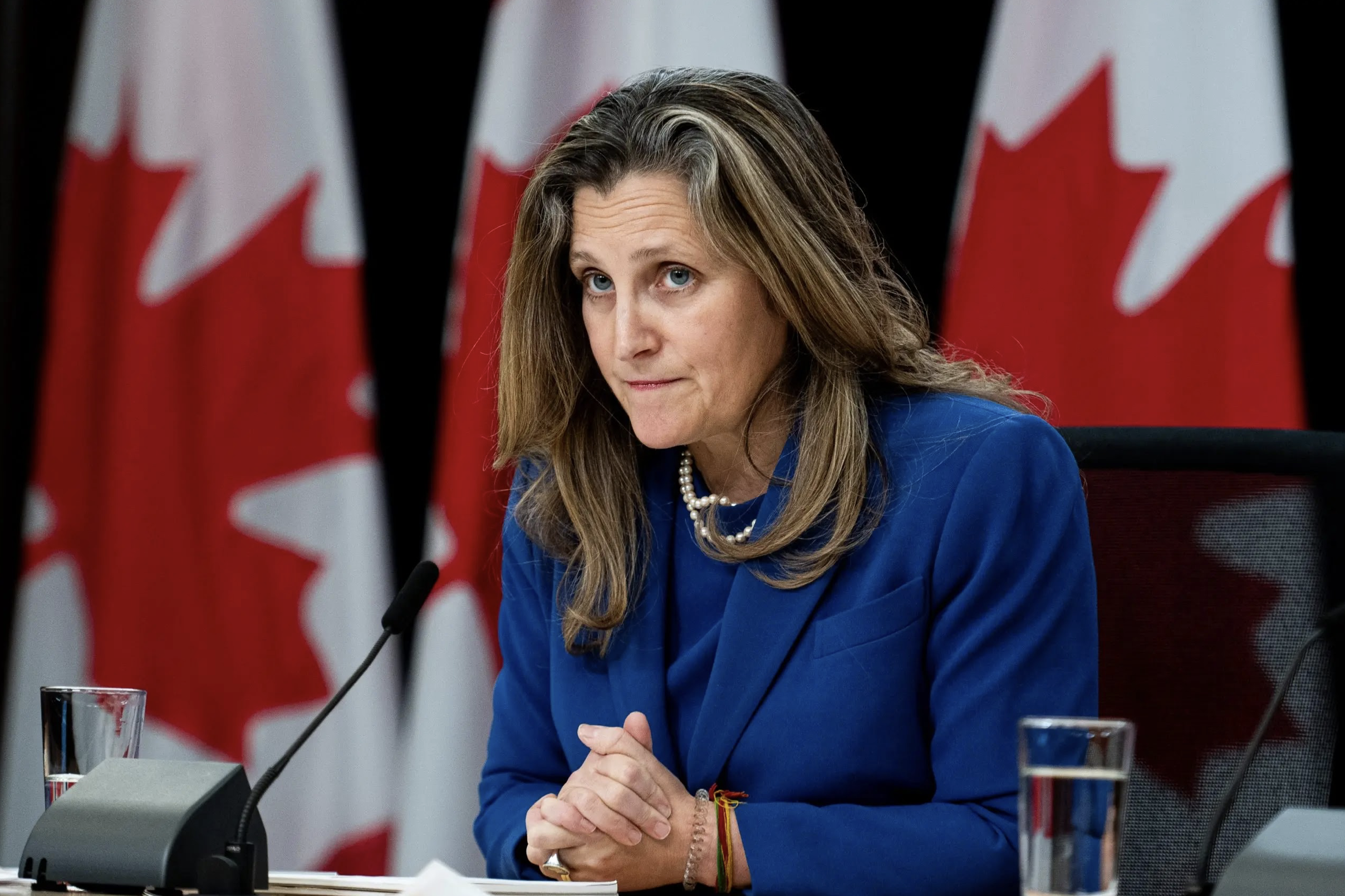The Liberal Party needs a leader free of Trudeau’s baggage if they hope to win again

Photo via iPolitics News.
With Chrystia Freeland’s dramatic resignation, the Liberals’ house of cards collapsed. Freeland, the finance minister and deputy prime minister, announced her exit from Prime Minister Justin Trudeau’s Cabinet on Dec. 16, 2024, hours before she was set to deliver the fall economic update. She posted the letter addressed to Trudeau on Instagram, explaining that the two were “at odds” for weeks. Upon reflection, Freeland said, she decided to resign from the Cabinet, calling it “the only honest and viable path.”
The dislike for Trudeau, both inside and outside of the Liberal caucus, has triggered widespread desire for a resignation. Abacus Data polled 2 000 Canadian adults and found that 59 per cent of respondents had a negative impression of Trudeau. Twenty-one Liberal Members of Parliament (MPs) called for Trudeau to step down before his resignation announcement on Monday, several of whom named Freeland as their choice to be the next party leader.
Considering her critical role in an administration notorious for financial trouble, is she really the future for Canadians, or should she stay in the past?
Charlottetown Liberal MP Sean Casey told reporters that there’s “no shortage of talent” within the caucus that could take on party leadership. He emphasized that a new leader wouldn’t have “baggage” like Trudeau. While Casey supported Freeland, citing her as an “intellectual heavyweight,” it’s unlikely that many skeptical voters will share Casey’s trust in someone so closely affiliated with Trudeau.
Just two months ago, south of our border, we watched a similar situation unfold. President Joe Biden’s reputation overshadowed that of the Democratic candidate, Vice President Kamala Harris. Regardless of qualification, American voters were skeptical because of her unwavering loyalty to Biden. Many felt scared that she’d continue implementing his unpopular policies. Freeland’s barriers echo those of Harris. Her sheer proximity to the words “Trudeau” and “finance” is detrimental. If the Liberal party wants a chance at public trust — let alone re-election — Freeland is not a strong choice.
Like the United States, Canada is at a political impasse. There is significant hostility from all sides, including the federal party leaders themselves. In a broadcast speech addressing the Governor General, Conservative Party Leader Peter Poilievre referred to the NDP-Liberal government as a “chaotic clown show.”
Poilievre is just one voice in a sea urging Trudeau to resign. The Conservatives are polling significantly higher, now 23 points ahead of the Liberals, highlighting the growing desire for new leadership.
While Trudeau has been Canada’s prime minister since 2015, this is the first time he’s leading without Freeland in his Cabinet. She served as the minister of international trade in Trudeau’s first term, and then deputy prime minister and finance minister for the following terms. Placing Freeland in the deputy position showed Canadians their bond and allyship — it’ll be hard to make people forget it.
The question isn’t whether Freeland is a qualified, capable individual, but rather, will people vote for her? Maybe. But not enough people. It’s unlikely she can gain Canada’s confidence beyond a reasonable doubt. While it’s alluring to choose the person with the most buzz, the next election is emotionally charged and will require calculated strategy.
Canada stands at a crossroads, where decisions made in the coming months will shape the nation’s trajectory. While Chrystia Freeland’s resignation marks the end of an era for Trudeau’s Liberals, it also serves as a sobering reminder: rebuilding trust and credibility can’t happen through old loyalties. The next leader must not only confront the economic and political challenges head-on but also restore Canadians’ faith in their government. If the Liberals fail to embrace a leader untethered from Trudeau’s shadow, they’ll find themselves watching from the sidelines.






